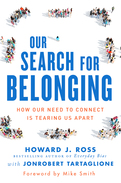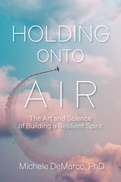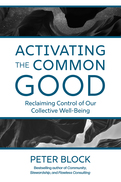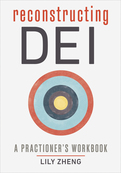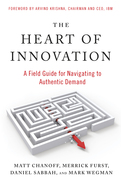
Download PDF Excerpt
Rights Information
Our Search for Belonging
How Our Need to Connect Is Tearing Us Apart
Howard J. Ross (Author) | JonRobert Tartaglione (Author)
Publication date: 05/08/2018
At the core of tribalism exists a paradox: as humans, we are hardwired with the need to belong, which ends up making us deeply connected with some yet deeply divided from others. When these tribes are formed out of fear of the “other,” on topics such as race, immigration status, religion, or partisan politics, we resort to an “us versus them” attitude. Especially in the digital age, when we are all interconnected in one way or another, these tensions seep into our daily lives and we become secluded with our self-identified tribes. Global diversity and inclusion expert Howard J. Ross, with JonRobert Tartaglione, explores how our human need to belong is the driving force behind the increasing division of our world.
Drawing upon decades of leadership experience, Ross probes the depth of tribalism, examines the role of social media in exacerbating it, and offers tactics for how to combat it. Filled with tested practices for opening safe and honest dialogue in the workplace and challenges to confront our own tendencies to bond with those who are like us, Our Search for Belonging is a powerful statement of hope in a disquieting time.
Find out more about our Bulk Buyer Program
- 10-49: 20% discount
- 50-99: 35% discount
- 100-999: 38% discount
- 1000-1999: 40% discount
- 2000+ Contact Leslie Davis ( [email protected] )
At the core of tribalism exists a paradox: as humans, we are hardwired with the need to belong, which ends up making us deeply connected with some yet deeply divided from others. When these tribes are formed out of fear of the “other,” on topics such as race, immigration status, religion, or partisan politics, we resort to an “us versus them” attitude. Especially in the digital age, when we are all interconnected in one way or another, these tensions seep into our daily lives and we become secluded with our self-identified tribes. Global diversity and inclusion expert Howard J. Ross, with JonRobert Tartaglione, explores how our human need to belong is the driving force behind the increasing division of our world.
Drawing upon decades of leadership experience, Ross probes the depth of tribalism, examines the role of social media in exacerbating it, and offers tactics for how to combat it. Filled with tested practices for opening safe and honest dialogue in the workplace and challenges to confront our own tendencies to bond with those who are like us, Our Search for Belonging is a powerful statement of hope in a disquieting time.
—Ron Shaich, founder and Chairman, Panera Bread
“This book is profoundly ‘for such a time as this.' In the book of Esther, we learn that as she contemplates the decision of her lifetime she is reminded, ‘For all that you know, all that you have has prepared you for such a time as this.' At this time, we need this body of work to help us lead, follow, listen, and learn. Whether we are engaging in courageous conversations, moving toward bonding and bridging, or seizing the opportunity to recognize and reconcile our urgent need for difference and belonging, this work is the go-to for the why and the how-to. We must now admit that ‘The past is never dead. It's not even past' and that ‘We can continue on the pathway to separation or take on the challenge.' I will use this as my favorite and most resourceful guide for content and context. Belonging is your labor of love, and the timing is perfect. We need this now! God bless you, Howard.”
—Wendy Lewis, Chief Global Diversity Officer and Vice President, Community Engagement, McDonald's Corporation
“Howard Ross transformed our understanding of both bias and unconscious bias with his wonderful book Everyday Bias. Now he is transforming our understanding of why we have people in America both tribalizing and too often fighting each other in damaging and dysfunctional tribal ways. This book is a must-read for anyone who wants to understand the mess we are in today and what we need to do now to give us a better future for our organizations, our communities, and even our nation. This will be another iconic book.”
—George Halvorson, former CEO, Kaiser Permanente
“Our Search for Belonging is a powerful statement of hope in a disquieting time. Our social divide is creating major challenges on college campuses, in workplaces, and in society itself. By helping us understand the reasons for the divide and the things we can do about it, Howard Ross has provided guidelines for a future that does not have to be limited by our past. A must-read!”
—Dr. Kristina Johnson, Chancellor, State University of New York
“Our field has an abundance of talkers, folks who have an opinion they feel obligated to share. We don't need more of either. We need more thinkers, more analysts of substance. In a world where national and tribal boundaries impose a defensive obsession with our differences, Howard has stepped in to fill that void. Legendary IBM CEO Thomas J. Watson, Jr., said, ‘We serve our interests best when we serve the public interest.' In my own work I have focused on the thought, ‘We talk to one another, not about one another.' In Our Search for Belonging, Howard is connecting those dots at a time when our societal survival is threatened. Global, national, local, or tribal—connect and respect are challenges we seem unable to execute. In this book, Howard is providing a mirror that makes us confront that picture and frames how we can navigate a treacherous road to higher, safer ground—a place where your place is not a bad place, and my place is not the only place for me.”
—J. T. (Ted) Childs, former Chief Diversity Officer, IBM
“In a compelling narrative style that rests on a foundation of cutting-edge research, Howard Ross describes a paradox of belonging: a psychological need to be embedded in a group has produced an ideologically segregated America. To erase those tribal boundaries requires a deeper sense of belonging, which Ross suggests we might first achieve in an unexpected place: at work. At work, people see and experience difference as beneficial. And at work, people can learn behaviors that produce a more inclusive belonging.”
—Scott E. Page, PhD, Leonid Hurwicz Collegiate Professor of Complex Systems, Political Science, and Economics, University of Michigan, and author of The Diversity Bonus and The Difference
“Our Search for Belonging serves as a GPS for the human condition and daily navigation of this thing called life. Howard offers an empowered and emboldened perspective on how we can simultaneously find ourselves and find ourselves within others. This book has something to help all people where they are, and there's not a person out there who wouldn't benefit from the guidance this book provides.”
—Caroline A. Wanga, Chief Diversity Officer, Target
"The increasing polarization that exists in our society today can be a real impediment to producing the results we need and want in business and in politics. In this book, Howard Ross helps us understand the importance of breaking down those barriers and provides powerful tools for how to do it."
—Manny Chirico, Chairman and CEO, PVH Corp.
“In a nation with so much division, Our Search for Belonging is a much-needed read to educate us all on the importance of the inclusion of women and men across all distinctions of diversity both personally and professionally. Howard Ross explores and captures a broad range of topics and issues that I believe is crucial to uniting humankind and our divided nation.”
—Dr. Sheila A. Robinson, Publisher and CEO, Diversity Woman Media
“Our Search for Belonging is a timely and wonderful gift to our national community as we struggle to find connection in the disparate views and feelings that divide us. It offers a guiding light of innovative and creative thinking grounded in impeccable research and scientific observation. This book is a necessary must-read to those wishing to further connect with the better in themselves regarding the isms and biases that we all carry as baggage in our lives. Our Search for Belonging is beautiful, powerful, and uplifting as it shares that goodness is latent in us all and how to achieve it.”
—William H. “Smitty” Smith, EdD, Founding Executive Director, National Center for Race Amity
“If you are at all concerned about how we can pull our polarized nation back together, buy this book. Get copies for coworkers, friends, and especially your children. Howard Ross illuminates practical pathways for courageous leaders to shape a better future for us all.”
—Bonnie St. John, Paralympic medalist and CEO, Blue Circle Leadership Institute
“Howard Ross has done it again! In Our Search for Belonging, Ross puts a human face on America's 21st-century conundrum and in doing so shows a path out of our current quagmire. He delves deeply into our psyche and neurobiologic drive to connect and shows how that drive to belong overshadows political or other external realities dividing us as a country into warring factions. And he shows us pathways toward healing the divide. This is must-reading for everyone across the political spectrum who really wants to make America great again.”
—Robert Wm. Blum, MD, MPH, PhD, William H. Gates Sr. Professor, Department of Population, Family and Reproductive Health, Johns Hopkins University, and Director, Johns Hopkins Urban Health Institute
“Once again, Howard Ross has tackled the thorny divisive issues of our day--demographic diversity, politics, social justice--by shining the light of humanity on them. Through solid examples, he gives the reader space and context for understanding how and why we all have the potential to create ‘us versus them' dynamics. His book serves as a road map that takes the reader on an empowering journey toward owning our part in creating inclusive cultures and helping others to belong.”
—Natalie Holder, diversity executive of a federal law enforcement agency
“In this thought-provoking book, Howard Ross delves into one of the most important issues of our time, namely, how the human yearning for belonging can paradoxically sow the seeds of division. Drawing on evidence from a wide range of disciplines, the book delivers potential solutions for mending our fractured society. This book should be required reading for anyone wishing to chart a better course for humanity—in this regard, it could be one of the most important books of the year.”
—Sukhvinder S. Obhi, PhD, Director, Social Brain, Body and Action Lab, McMaster University
“Many people know Howard for his research-based approach to implicit bias and his national and international work helping organizations better manage this unconscious human process. With Our Search for Belonging, he combines research, philosophy, and the insights of current and past leaders into a powerful analysis of the current political, sociological, and psychological forces that have contributed to the polarization that so many of us experience in this current national climate. With stories and evidence-based examples, Howard helps us better understand the powerful role of the human drive for that sense of belonging . . . that deep connection that is essential to human survival. He shines a light on ways that belonging has contributed to negative, even violent, movements in our history, but more importantly, he helps us appreciate the deep wholeness we experience when we truly connect, engage deeply with individuals, within our family, workplace, or country. With specific, ‘pathways to belonging,' he charts a way forward for individuals, leaders of organizations of all types, and hopefully, those elected to represent our interests.”
—Benjamin D. Reese, Jr., PsyD, Vice President and Chief Diversity Officer, Duke University/Duke University Health System
“In this groundbreaking book, Howard Ross uses his keen insight and decades-long experience in the field of diversity and inclusion to explore how the human tendency to belong and include also leads to tribalism and exclusion. Calling the latter ‘bonding against,' Ross uses research in behavioral and cognitive science to show how these ‘us versus them' tendencies spring from our evolutionary heritage; in the modern world, they gravely threaten our civic and faith communities, our workplaces, our information ecosystem, and our politics. Unlike many books that diagnose the problems without providing solutions, Ross spends two chapters on how we can bridge our divides by focusing on mutual understanding and coexistence, both as individuals and, perhaps even more importantly, within institutions. From my perspective both as a scholar and consultant on emotional and social intelligence and effective decision-making, this book is a must for leaders who want to ensure that the institutions they lead avoid the disastrous consequences of bonding against.”
—Dr. Gleb Tsipursky, author of The Truth-Seeker's Handbook; President, Intentional Insights; cofounder of the Pro-Truth Pledge; Assistant Professor, The Ohio State University; and speaker
“Once again, Howard Ross has clearly illuminated the details of an incredibly important conversation. This book is a creative and compelling explanation of why and how we connect, and don't connect, as people; great depth will be added to the institutional and professional legacies of those able to effectively develop pathways to belonging in the places where we engage every day. Howard offers the keys to maximizing collaboration, innovation, productivity, and effectiveness in an increasingly complex world.”
—Chevy Cleaves, inaugural Chief Diversity Officer, US Air Force
“This is what the world needs now. Howard Ross articulates what many in the medley of humanity are feeling but struggle to process coherently—or, most importantly, act upon. I hope that the sound research and suggested action plans found in this book will inspire millions of butterfly wing flaps that generate a gentle wind bringing higher levels of harmony for generations to come.”
—Dennis W. Quaintance, cofounder and CEO, Quaintance-Weaver Restaurants and Hotels
“Our contemporary conversations about discrimination often focus on individual bias but fail to show how those biases relate to our need for belonging. Howard Ross's accessible book makes this important connection. He examines current events, social science, and neuropsychology to explain this irony—how our 21st-century quest for community separates us from each other. But this isn't a dry academic survey. Ross offers insight gained from his rich experience, candor, awareness, and most importantly, realistic solutions for ourselves and our workplaces to address this paradox. This book should be read by organization leaders, professionals concerned about human relations, and anyone interested in building community consciously and carefully.”
—Atiba R. Ellis, Professor of Law, West Virginia University
“Deep knowledge of the science behind unconscious bias and a rich tableau of experience working with the world's leading organizations leads to remarkable practical insight! That is the essence of this much-needed and timely new book by Howard Ross. A must-read for all of us as individuals who increasingly need to decode the complex implications and unintended consequences of our obsession with social media connectivity and for leaders and businesses seeking to build inclusive flourishing cultures that bind rather than divide us.”
—Shubhro Sen, PhD, Director, School of Management and Entrepreneurship, Shiv Nadar University, and cofounder of Conscious Capitalism Institute
“The economic and political middle have been carved out of the United States. Now the cultural middle (the values and norms that hold us together as a society) is threatened. Howard Ross offers a compelling observation of how we associate with those most like us and how it's created a dangerous polarization. More importantly, he offers a different path forward.”
—Brian A. Gallagher, President and CEO, United Way Worldwide
Introduction
A Tale of Two Countries
It was the best of times, it was the worst of times, it was the age of wisdom, it was the age of foolishness, it was the epoch of belief, it was the epoch of incredulity, it was the season of Light, it was the season of Darkness, it was the spring of hope, it was the winter of despair, we had everything before us, we had nothing before us, we were all going direct to Heaven, we were all going direct the other way.
— CHARLES DICKENS
We are living in a society today that can feel at times like it is coming apart at the seams. For some this is mostly what they see on the news or on their social media platforms, because they live in environments that seem largely homogeneous. For others it is the day-to-day experience of living in communities that are torn between “them” and “us,” or in workplaces in which there is a constant, underlying nervousness about what we can and can’t talk about. Even within families, different political and social perspectives create tensions and separation.
The purpose of this book is to seek to understand these tensions and offer the hope that there are ways to address our differences that can bring healing. It is not impossible. In workplaces all around the country, people are beginning to engage in courageous conversations about difference, because the workplace may be our greatest hope for reestablishing connection between our different “tribes.” Target sponsors a workshop to encourage dialogue between white women and women of color to generate greater understanding and mutual support, and pulls employees of all backgrounds together to talk about how the threatened ban on the issuance of visas to Muslims may impact their Muslim employees. General Mills conducts regular critical conversations in which employees come together to talk about their concerns and find common ground. Governmental agencies, the military, the intelligence community, and hundreds of corporations, schools, and other institutions engage in trainings to better understand how bias impacts their ability to work together. Starbucks attempts to create an opportunity for customers and baristas to talk about race. Some of these efforts have been more effective than others, for sure, but more and more organizations understand that the stresses that exist outside our work environment come to work with us every day and impact how we relate to our fellow workers.
As we will discover, it is natural for us to bond with people we identify with. Whether those groups are formed by family connection, race, gender, or other forms of mutual identity, we have a particular connection to people who are like us, in whatever way we define that. Most people, however, find that it is limiting to the fullness of our lives if we only relate to people with whom we bond. It is our ability to bridge with others that gives us new ideas, new insights, and a deeper, richer perspective on life. It is also very difficult to get the best out of people when they cannot be fully themselves. Organizations that want to thrive will be frustrated if they do not create a sense of belonging.
And most important for our society, the experiment that is democracy cannot work without bridging across differences.
Yet in our country today, those bridges are either in disrepair or burning.
For years, our political system has largely operated as a bell curve. While there were people on the extremes of both liberalism and conservatism, most politicians gravitated toward the middle, with many falling on one side or another depending upon the issues that were being discussed. During the days of the civil rights movement, northern liberal Republicans worked together with many Democrats; however, some southern Democrats teamed up with other Republicans to oppose landmark legislation. Anti–Vietnam War Democrats teamed up with some liberal Republicans to oppose the war, while some conservative Democrats and other Republicans supported it. The notion of politicians crossing party lines to support legislative action of one kind or another was more the norm than the exception. This is not to say there weren’t plenty of other challenges: LGBTQ people were mostly resigned to living in hiding, the rights of people of color were barely being explored, and the rights of women were even more challenged than they are today.1 Yet the divisions were not as stark as they are now.2
Now, however, we have devolved into what we might call a dumbbell curve, in which everything is on the extremes and nothing is in the middle. The most conservative Democrats generally vote more on the liberal side than the most liberal Republicans, and vice versa. And the gap between the two is increasing, even in terms of where we live. We can see this clearly through analyzing what has been called the Whole Foods/Cracker Barrel divide.3 Whole Foods Market and Cracker Barrel Old Country Store illustrate this polarization as much as any other example. Both companies exist throughout the United States and both emphasize connections to their local communities, yet when you look at the voting patterns of people who live around their franchises, you can see American political segregation in stark relief.
Whole Foods stores generally reside in more liberal/Democratic communities. Cracker Barrel restaurants, on the other hand, generally are in more conservative/Republican enclaves. In the 1992 presidential election, Bill Clinton won roughly 61 percent of counties with a Whole Foods Market in them and only 40 percent of those with a Cracker Barrel restaurant, a 21 percent gap. However, as you can see in Table I.1, that divide has increased every election since then. In 2012, Barack Obama won in 77 percent of the Whole Foods counties and only 29 percent of the Cracker Barrel counties, a 48 percent gap!4
This is not to suggest that there are not counties that continue to have more political diversity, but the trend here is striking. A look at the electoral map bears this out, as does additional research.5 The result has been that these extreme, homogeneous sides have cannibalized reasonable political discourse and shifted our sense of normalcy from an expectation that we will have to work together to a win-lose dynamic in which each side strives to win at all costs.
At an even deeper level, when we look at the 2016 presidential election totals through another lens, an even more troubling pattern arises. This polarization of voting doesn’t only occur in political affiliation; it is a function of demographic identity.6 People who voted for Trump overwhelmingly represent what we might call the dominant identity groups: 58 percent of whites, 53 percent of men, and 58 percent of Christians. Clinton voters represent the nondominant groups: 88 percent of blacks, 54 percent of women, 65 percent of Latinos, 65 percent of Asians, 71 percent of Jews, and 78 percent of LGBTQ voters. It was more than just a question of issues; it was a question of identity. And this is a critical difference. When we evaluate people based on issues, it is impersonal. When we evaluate people based on identity, we objectify them. It is no longer “I disagree with you on this point”; it becomes “I don’t like who you are!” When the people we disagree with politically look different from us and have different cultural backgrounds, it is easier to demonize them as the “other.” It also makes it easier for the power dynamics in society, between those in dominant cultural groups (e.g., whites, men, heterosexuals, Christians, people with higher incomes) to have their identity power manifest in the political process and therefore in public policy.
We are living in a time of increasing political segregation that threatens to tear us apart as a unified society. The result is that we are becoming increasingly tribal, and the narratives that we get exposed to on a daily basis have increasingly become echo chambers in which we hear our beliefs reinforced and those of others demonized.
This mind-set does not only impact our political lives. Communities in the United States are becoming more segregated than they have been in years. Racial segregation in public schools is at a rate comparable to the 1960s, and increasing movement to private and charter schools seems destined to make it more pronounced.7 According to the Government Accountability Office, the number of high-poverty schools serving primarily black and brown students has more than doubled since 2000, and the proportion of schools segregated by race and class (in which 75 percent of children receive free or reduced-fee lunches and more than 75 percent are black or Hispanic) climbed from 9 percent to 16 percent during that period.8
The racial divide in the United States, though never resolved, has emerged more publicly again in response to the killing of numerous black men and women by police officers. African Americans continue to struggle with higher unemployment, poorer schools, lower-quality health care, and, on average, only one-seventh the accumulated wealth of the average white family. This has birthed the Black Lives Matter movement. Yet racial extremists have become more publicly emboldened, demonstrated by a rise in white nationalist and white supremacist organizations and activity. As I write this, the controversy about whether athletes should be allowed to protest is bringing the nation to its knees, as is the appropriateness of Civil War memorials in public places, and questions abound as to whether the 2017 hurricane damage in Puerto Rico is being treated differently because most of the U.S. citizens there are not white. Racial gaps in income and wealth continue to remain significant, and are even increasing as the tension around other societal issues continues to foment.
Fear leads to stronger anti-immigrant feelings throughout the West. Incidents of terrorism by radical Muslims lead to rampant Islamophobia and calls to keep “them” out. Anti-Muslim hate crimes are on the rise, as are those that are anti-Semitic.9 Fear of difference regarding transgender people leads to transphobic reactions and laws to keep people from using the bathroom of their choice.10 Attempts are being made to roll back some of the advancement of equal rights for LGBTQ Americans, under the guise of religious rights. Voter suppression laws are passed that will undoubtedly impact people of color and low-income people, at the same time as legal scholars assert there is, in fact, no real evidence of voter fraud for these efforts to “fix.”11 At almost every turn, we see an explosion of “us versus them.”
The tension extends to our most fundamental relationships. Thousands of families canceled their usual Thanksgiving dinners after the 2016 elections because of the fear of confronting political divide within their own families, in effect feeling more bonded with their political tribe than with their families.12 Businesses find it more and more difficult to avoid the tension that these dualities regularly create in the workplace. Studies show that this workplace tension causes not only generalized stress but an increased reticence to talk about “controversial issues,” even when they impact the work.13 Schools have seen a surge in bullying, some children returning home with the message from teachers and peers that their “families will be deported.”14
At the heart of this division is fear: fear of the other, fear of exposing ourselves, fear of not having control over our own lives, fear for the safety and survival of our friends, our loved ones, and ourselves.
We do not have to accept this division as inevitable. In this book I will be attempting to help explain why we are so pulled to polarized positions, to explain why our demonization of each other is occurring, and to offer hope. There are numerous examples of people and organizations who are attempting to reach across the divide—to create bridges to belonging that can help us remember that it is possible to disagree without being disagreeable, and to remember that we have a shared destiny, whether we like it or not. These efforts are occurring in communities across the country and also in our workplaces. In fact, I will make the case that the workplace is one of the best vehicles we have for building healing and understanding by the very fact that it is one of the few places where people who are different from each other have to learn to work together. I will also offer suggestions as to how we can create that sense of belonging in our families, organizations, communities, and society.
Why Is the Divide So Painful?
Why do these tensions hit us so hard? Because at the same time as we are pulled apart by these political and social dynamics, we are learning at a deeper level that human beings have a strong need to belong, to feel connected to those around them. We have seen over the course of history how this need to belong can lead people to come together, especially during times of crisis, and achieve remarkable things, as in the mobilization of the United States as it entered World War II. We have also seen how that same need to belong has allowed people to engage in some of the worst events in human history: the Holocaust, slavery, the Rwandan civil war, et cetera. We have demonstrated a blind, and often terrifying, willingness to go along with the crowd, even when the crowd is doing evil. In today’s world, the need to connect with those that we relate to, and at the same time stay away from the other is creating a degree of tribalism that we haven’t experienced in centuries.
The 2016 presidential election, and politics in general, is just one way this divide is manifesting itself throughout our culture. The bigger issue, and the bigger question that underlies this book, is: How does the inherent need to belong impact us as human beings? And, perhaps even more important: Why is this happening, and what we can do about it?
I will be exploring why it is natural for human beings to feel more comfortable with people in groups to which we belong. It creates a kind of bond that has us feeling safer and knowing what to expect, what is considered normal, and how to relate. However, if we are to transcend the division that we now experience and move toward a more peaceful and equitable societal order, we will also have to learn better how to bridge across those bonded groups. Perhaps what is now seen as “us versus them” can, at least much of the time, be turned into collaborations in which we draw from the best of both.
I don’t think that it is being hyperbolic to say that we are in a time of crisis. My hope is that this book will create a greater understanding of why that crisis is occurring, and chart a path that can help us build greater connection in our families, communities, and organizations. We’ll start by getting a better understanding of what belonging is and why we need it.
It is natural for us to want to look for solutions, and we will get there. Yet my thirty-five years of professional experience in creating sustainable change has taught me that over the long term, transformational change occurs only when we understand why we do the things that we do. In this case that means exploring why it is that human beings are so driven to live in and be influenced by the groups that they identify with.
It is no accident that people demonstrate a universal desire to fit into groups. The need for belonging is an inherent survival mechanism. We will start by exploring why that is, how it impacts us, and how both the human brain and the mind are geared toward belonging, even at times when it separates us from others.







